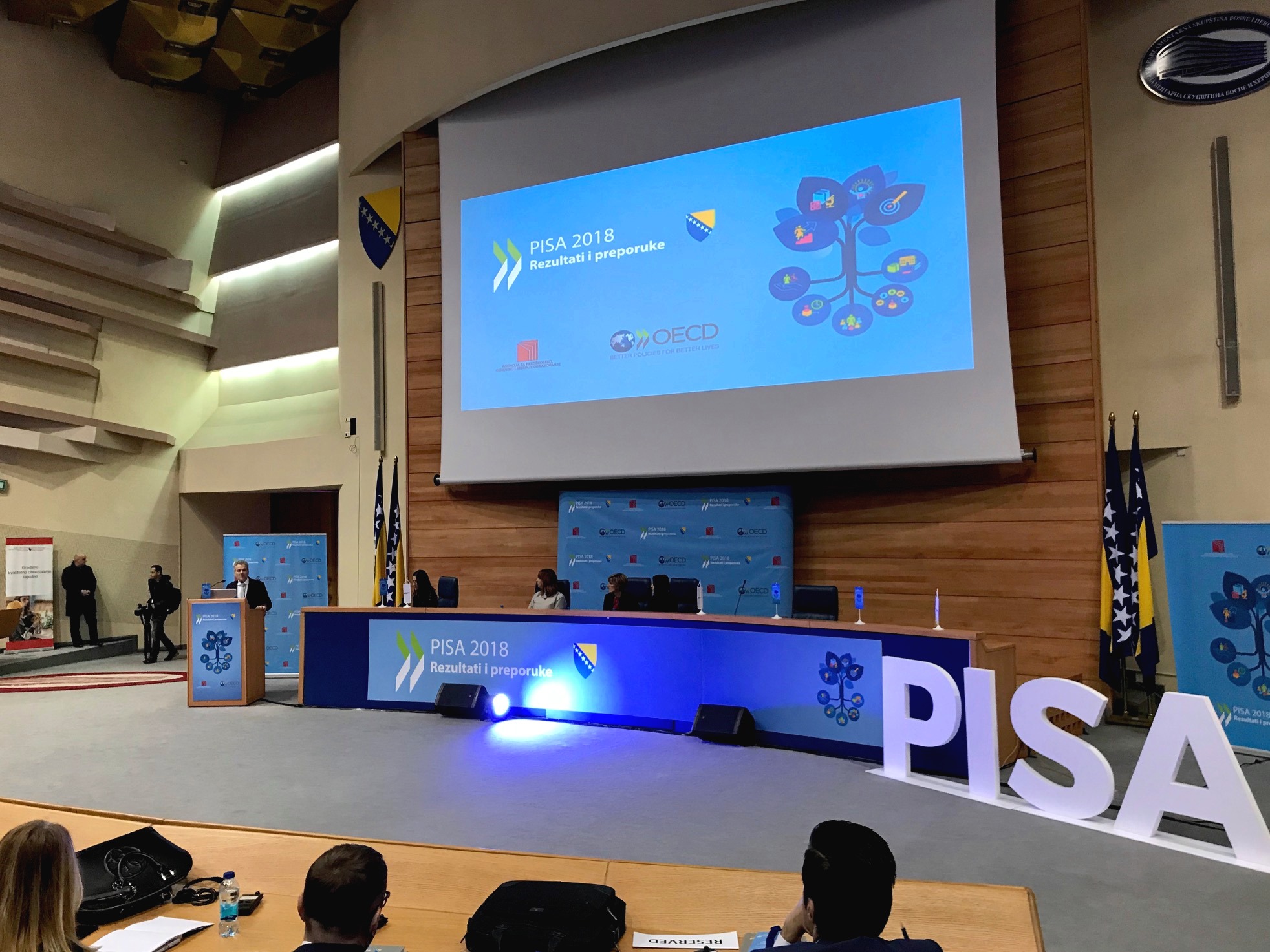The results of the PISA (Programme for International Student Assessment) presented today represent an important moment for the education sector of Bosnia and Herzegovina, which joins a total of 79 countries around the world participating in the assessment. Over 200 schools in BiH took part in the PISA study, which was organised by the Agency for Pre-Primary, Primary and Secondary Education (APOSO) in cooperation with UNICEF. The European Union enabled the participation of BiH in the PISA survey by co-financing the country’s entry fee in the amount of €194,000.
Ambassador Johann Sattler, Head of the European Union Delegation to BiH and EU Special Representative in BiH, underscored that the EU is the biggest international donor for development of education in BiH and emphasised the EU’s continuing commitment to support the education sector in this country through a number of EU assistance projects. “PISA is a resource for countries to reform their education policies, which is why I hope these results are really a call for action,” said Ambassador Sattler.
The principal criterion for success of PISA is to help countries build robust and internationally comparable metrics for relevant learning outcomes and to build capacities for using the resulting data for the design and implementation of necessary reforms in the education sector.
PISA results are not just about rankings in education. Countries can obtain enormous economic gains if they improve cognitive skills of their populations. It is recognised that there is no single set of policies that will work for every country; therefore local circumstances are taken into account during the implementation of results.
The European Commission’s Directorate-General for Education and Culture has signed a contract with the OECD to develop a policy paper with recommendations for all six Western Balkans partners based on the PISA survey, which will be published in June 2020, ahead of the Western Balkans Education Ministers’ Conference.
Ambassador Sattler stressed that education has a pivotal role in countries experiencing transition as it helps to build democratic culture and contribute to growth and prosperity. Further brain drain of youth can also be mitigated if pupils are given an efficient school system which is internationally comparable, recognised and easily adaptable.
“I want to encourage BiH authorities to continue taking part in international assessments. BiH authorities need to urgently act in order to ensure the country’s participation in the next – PISA 2021 assessment,” reminded Ambassador Sattler.




